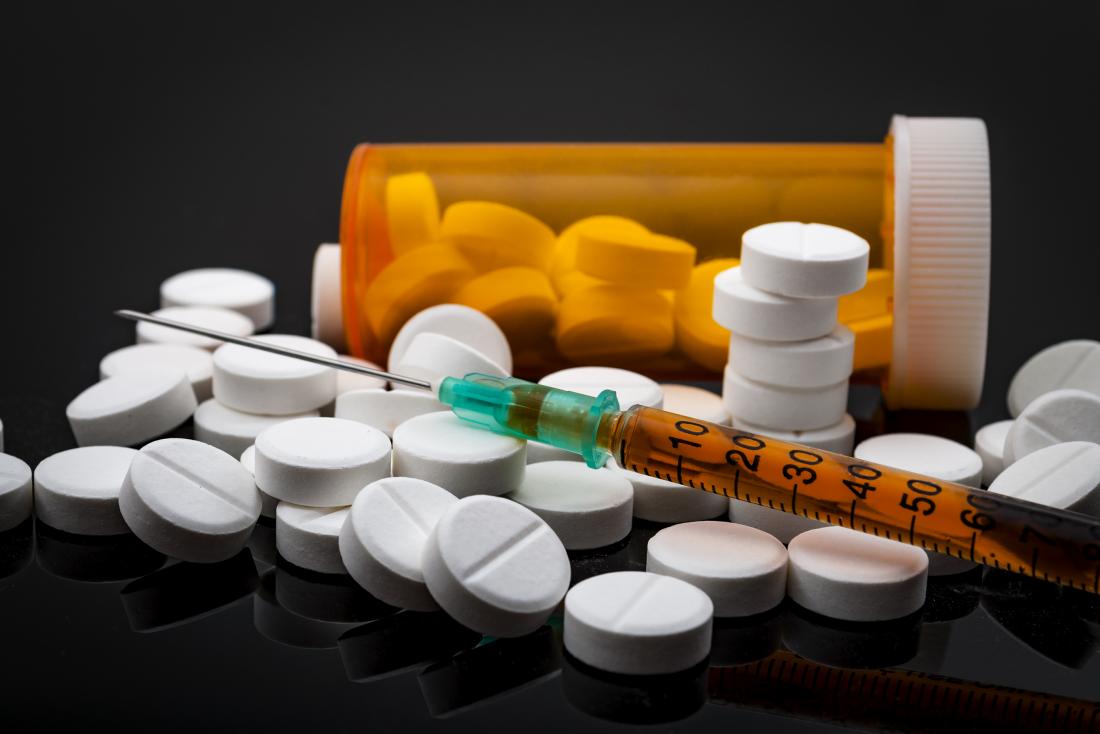The United States government is doing nothing to fight the opioid epidemic.
Wait, let me rephrase that…
The United States government is doing nothing to fight the opioid epidemic that will actually help the problem.

For decades, the government has certainly made it seem like it was doing something to combat drug abuse. It wasted billions in taxpayer dollars on failed anti-drug programs such as D.A.R.E. and used money only to expand its authority. But the proof is in the pudding.
Let me ask you this: After decades of spending billions on fighting the “War on Drugs,” how much success do you see the government has had in combating drug use?
You’d think that after seeing failure upon failure, the government would try to change up its strategy. But no. The only thing the U.S. government changes in terms of its drug policy is its rhetoric from administration to administration.
Trump’s latest initiative to fight the opioid crisis is just more of the same. Here are some of the things included in the administration’s recent plan to curb supply:
-
Require advance electronic data for 90% of all international mail shipments (with goods) and consignment shipments within three years, in order for the Department of Homeland Security to flag high-risk shipments.
-
Identify and inspect high-risk shipments, leveraging advanced screening technologies and using drug-detecting canines.
-
Expand the DOJ Opioid Fraud and Abuse Detection Unit’s efforts to prosecute corrupt or criminally negligent doctors, pharmacies, and distributors.
-
Aggressively deploy appropriate criminal and civil actions to hold opioid manufacturers accountable for any unlawful practices.
-
Shut down illicit opioid sales conducted online and seize any related assets.
-
Scale up internet enforcement efforts under the DOJ’s new Joint Criminal Opioid Darknet Enforcement (J-CODE) team.
- Strengthen criminal penalties for dealing and trafficking in fentanyl and other opioids:
-
DOJ will seek the death penalty against drug traffickers, where appropriate under current law.
-
The president also calls on Congress to pass legislation that reduces the threshold amount of drugs needed to invoke mandatory minimum sentences for drug traffickers who knowingly distribute certain illicit opioids that are lethal in trace amounts.
-
Everything here has been tried before over and over. Increasing criminal and civil penalties, drug screenings at entry ports… history has already shown us that none of this will do much to stop supply. So what’s the point?
But that’s not all Trump has planned to expand government powers. The administration wants to begin screening every federal inmate for opioids use at intake and get states to begin using a national database of opioid users.
For the most part, that’s the government’s new plan to fight supply. What about demand?
Our analysts have traveled the world over, dedicated to finding the best and most profitable investments in the global energy markets. All you have to do to join our Energy and Capital investment community is sign up for the daily newsletter below.
Well, there’s virtually nothing of value.
Trump’s initiatives to fight demand amid the opioid crisis are basically as follows:
-
Get kids to work
-
Reunite recovering addicts with their children
-
Increase anti-drug ad campaigns
That’s about it. I printed out eight pages of a summary of Trump’s initiative. Seven of them were plans to continue spending money on ineffective programs and expanding the government’s power.
Okay, there is one brand-new thing this administration is going to try. Instead of targeting only children with anti-drug ad campaigns, they’ll now target all age groups.
So I guess I can’t say there isn’t anything new here.
The bottom line is that the government cannot solve the opioid epidemic. Nor is it even making any good efforts.
Like everything else, the opioid crisis will be solved by the private sector.
That’s why guys like my colleague Jeff Siegel are investing in companies with products that will help curb the crisis. They know the government can’t and won’t help. So they’re putting their money into places that can and will.
And if they can make a profit and help end the opioid crisis… well, that’s all the better.
Over the past several months, Jeff has grown more concerned about the opioid crisis in America. So he’s started to build a portfolio of stocks that’s are fighting the opioid crisis.
Jeff just put all his months-long research into a new report, which you can access exclusively here. Take some time to check out this report, and make sure to read all the way through.
Until next time,
Luke Burgess
As an editor at Energy and Capital, Luke’s analysis and market research reach hundreds of thousands of investors every day. Luke is also a contributing editor of Angel Publishing’s Bull and Bust Report newsletter. There, he helps investors in leveraging the future supply-demand imbalance that he believes could be key to a cyclical upswing in the hard asset markets. For more on Luke, go to his editor’s page.
A crucial government document has been leaked.
A document that reveals a way average Americans can collect checks of $2,493… $4,112… or even $6,383 every month.
You can start padding your wallet as soon as November 6th, but you have to act fast.
Let financial insider Chris DeHaemer show you how this government leak could make you a second paycheck.

